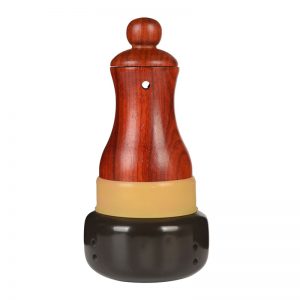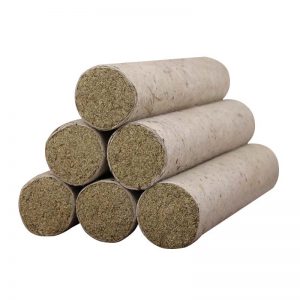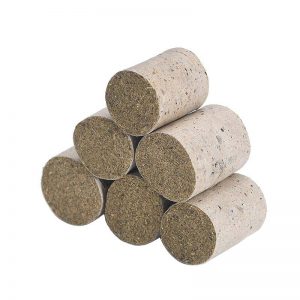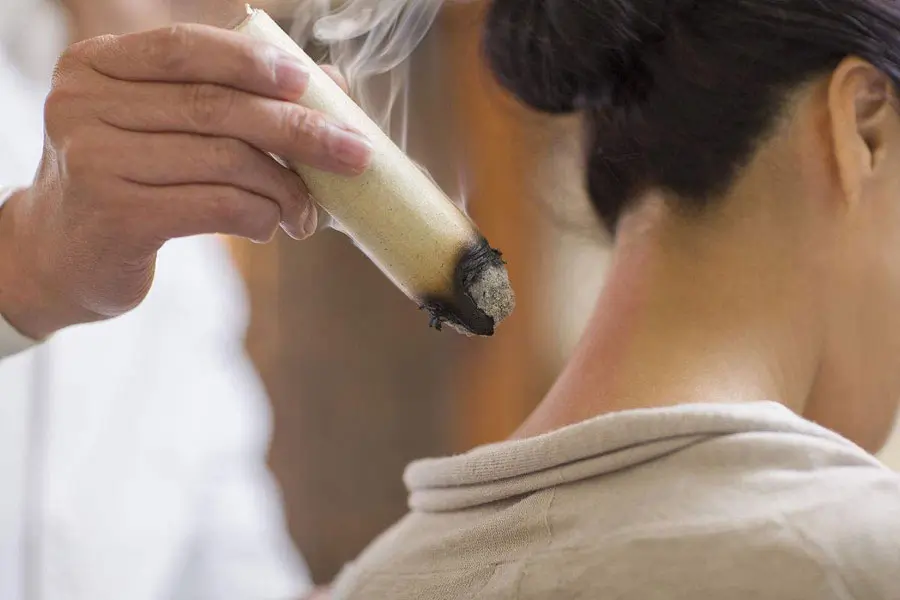Moxibustion is an external treatment that comes from traditional Chinese medicine. The practice involves a practitioner burning the moxa on or above the skin to stimulate specific acupuncture points. Its goals are to promote the flow of Qi or energy, strengthen the blood, and maintain excellent health.
What is moxibustion good for?
Moxibustion is founded on the belief that blockages in the flow of energy lead to mental and physical health problems. Moxibustion warms the acupoints and meridians, strengthens the circulation and improves the flow of qi, and triggers the body’s natural healing response. Because of this, Specific health benefits of moxibustion can include:
- Expelling cold and dampness from the body (“warming the meridians”) to relieve back pain and pain from arthritis and menstrual cramping
- Improving female health issues such as menstrual irregularity, infertility, and breech pregnancy
- Relieving male health problems such as impotence and poor sperm quality
- Increasing resistance to cold and flu; this is especially helpful for patients who tend to suffer from contagious viruses that circulate in winter frequently
- Stimulating the immune system to fight more serious illnesses and to keep the body healthy
- Regulating the digestive system to relieve constipation and chronic diarrhea
- Reducing numbness in the fingers and toes
- Reducing the risk of developing blood clots
- Easing anxiety disorders and certain symptoms of depression
- Relieving side effects of conventional cancer treatment
- Strengthening qi to eliminate general fatigue, leading to increased energy throughout the day
How to perform moxibustion?
Moxibustion can be divided into direct moxibustion and indirect moxibustion, depending on whether moxa is directly in contact with the skin while operating.
The more popular form of moxibustion nowadays is the indirect type because it comes with a lower risk of pain or burning. Among them, Moxa stick moxibustion is easy to operate and can be done at home according to medical advice.
For the moxa stick moxibustion method, explore:
How to moxibustion for common diseases, explore:
- How to Moxibustion for Common Cold
- How to Moxibustion for Frozen Shoulder
- How to Moxibustion for Knee Osteoarthritis
- How to Moxibustion for Cervical Spondylosis
- How to Moxibustion for Insomnia
- How to Moxibustion for Primary Dysmenorrhea
- How to Moxibustion for Impotence
- How to Moxibustion for Functional Constipation
- Explore more…
What is the proper sequence of moxibustion?
In the book “Qian Jin Fang,” Sun Simiao, an ancient Chinese physician, known as the “King of Medicine,” clearly recorded the principles of moxibustion: it should follow the sequence of treating yang before yin, left before right, and upward before downward.
So, how are different parts of the human body categorized as yin and yang?
As an agricultural nation, the ancient Chinese ancestors generally lived with their faces toward the yellow earth and their backs to the sky. Therefore, in Traditional Chinese Medicine, the back and upper body are classified as yang, while the abdomen and lower body are classified as yin. In the theory of yin and yang, the head is yang, and the feet are yin; the left side is yang, and the right side is yin.
So, According to traditional Chinese medical theory, the general sequence for moxibustion treatment is as follows:
First, moxibustion on the upper body, then on the lower body.
First, moxibustion on the back, then on the abdomen.
First, moxibustion on the head and torso, then on the limbs.
First, moxibustion on the left side, then on the right side.
Following the above sequence will yield good results when practicing moxibustion for daily health maintenance. Of course, Traditional Chinese Medicine emphasizes individualized treatment, and there are multiple methods for managing various conditions. It is generally recommended to prioritize relieving symptoms, such as moxibustion on specific acupuncture points like “Ashi” points and other key points.
Does moxibustion hurt?
It shouldn’t! For indirect moxibustion, the practitioner lights one end of a moxa stick and holds it close to the area being treated for several minutes until the area turns red, the moxa never touches your skin. And even with direct moxa, you should only feel heat and warmth, but not pain; your practitioner should remove the moxa before it burns or blisters.
How long does moxibustion take to work?
There is no simple, one-size-fits-all answer to this question. However, moxibustion takes its effects gradually, and it is not a technique that will immediately show its full range of effects. Different people will observe results at varying intervals, depending on their particular constitution and on which ailments were treated.
For example, According to research, moxibustion takes six weeks, three times per week for 30 minutes each time to treat digestive disorders. According to research, moxibustion takes three months to overcome menstrual pain. It is used for the management of primary dysmenorrhea.
How often should you do moxibustion?
You should do moxibustion according to your disease. It involves applying moxa to specific acupoints based on individual constitution and the condition being treated. For the treatment of acute or sudden-onset illnesses, daily moxibustion is required. For example, some patients may experience cold-induced colds, fever, or coughs, and in such cases, moxibustion can be performed once a day. Similarly, for conditions like diarrhea or stomach pain caused by unclean food or cold exposure, daily moxibustion is recommended until the symptoms subside.
For constitution adjustment or treatment of chronic diseases, the duration of treatment typically ranges from 1 to 3 months or even up to half a year. The frequency of moxibustion in such cases can be every other day or once every two days.
Does moxibustion have side effects?
Moxibustion is generally safe, The biggest risk of moxibustion is getting burned in the process. For this reason, it’s better to stick with indirect moxibustion, especially if you’re doing it on your own. This allows for some space between the burning moxa and your skin. According to an early review, other possible side effects include:
- Coughing from the smoke
- Nausea and vomiting
- Toxic reactions to mugwort
- Dark patches on your skin
- Fetal distress if you’re pregnant
- Premature birth
- Basal cell carcinoma or a type of skin cancer
How to get rid of the moxibustion smell?
If possible, open a window or run an air filter when conducting moxa to lessen the discomfort for both the patient and the practitioner. According to studies on the effects of moxa burning on the quality of the air, using local exhaust ventilation appears to be a successful method for reducing the number of indoor air pollutants produced by moxibustion. The toxicity of moxa smoke is shown to be minor with sufficient ventilation.
Can smokeless moxa sticks have the same effect?
Despite its name, however, smokeless moxa also produces some smoke. Smokeless moxa comes from carbonized moxa and involves additional steps called carbonization during the production process. The carbonization process minimizes the burning of moxa’s emissions, eliminating around 90% of the moxa smoke. However, the carbonization process also severely destroys the original aroma and active ingredients of mugwort and reduces the efficacy of moxibustion.
Meanwhile, it result difficult to distinguish between high-quality and low-quality mugwort, as the texture, color and scent are thrown off by the carbonization process. Some unethical moxa producers have taken advantage of this difficulty by substituting moxa leaves with branches and stems, or in rare cases, even mixing mugwort with wood charcoal! In these extreme cases, smokeless moxa sticks can spark and burn the skin. It’s therefore very important to be cautious when purchasing smokeless moxa sticks, If you can stand the moxa smell, it is recommended to use the traditional moxa sticks.
Traditional moxa sticks are still preferred in many parts of Asia and the world because it is regarded as the more effective method. Smoke is a part of the treatment, and many people are willing to ignore it for the supposed benefits it brings.
What are the precautions before moxibustion?
To protect your safety and maximize the therapeutic effects of moxibustion, here are some safety measures to think about:
- Ask for advice from a certified and skilled practitioner before moxibustion yourself.
- Let your doctor know if you have any allergies, or pre-existing diseases, or are taking any medications.
- It’s important to let your practitioner know if you’re expecting because moxibustion during pregnancy may require special care.
- Don’t use moxibustion on skin conditions like burns, rashes, or open wounds. Moxa heat can make these symptoms worse and slow the healing process.
- Dress comfortably and loosely so that you can easily access the regions where the moxibustion will be done.
- Express any discomfort.
What to do after moxibustion?
You should do the following things after moxibustion:
- After the treatment, avoid consuming substantial meals.
- For 3-4 hours following therapy, refrain from exercising or smoking.
- Avoid taking a bath just after using moxibustion. Before having a shower, it is best to wait at least 4 hours (and remember to bathe in hot water, not cold).
- After receiving Moxibustion, you should stay out of any cold settings. After your session, avoid being exposed to air conditioning or having fans blow directly onto you.
- Waiting at least two hours after moxibustion before washing your hands or face with cold water or consuming any cold beverages is advised.
- Drink a lot of warm water. The human body’s microcirculation can be improved by moxibustion. You’ll notice a change in Qi (energy) during or after moxibustion. This alteration in Qi may cause sensations like soreness, numbness, swelling, pain, itching, cold, heat, wind, chilly, cool, etc.
- The diet should be light during the Moxibustion conditioning period. It is advised to steer clear of consuming alcoholic beverages and cold, spicy, or oily foods.
Where can I buy moxibustion sticks?
Moxabio is your best choice. Our mugwort originates from Qichun County, China, also known as Qichun mugwort or Qi Ai, a Geographical Indication Product, which is famous for its high quality. Its burning calorific value, volatile oil content, and other indicators of modern testing are significantly better than other varieties, perfect for clinics or moxibustion at home.
-

-
Sale!
 Original price was: $42.00.$36.00Current price is: $36.00.
Original price was: $42.00.$36.00Current price is: $36.00. -


